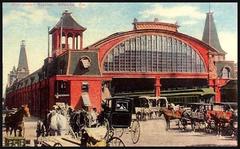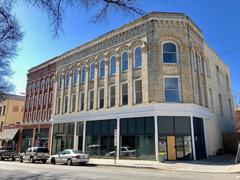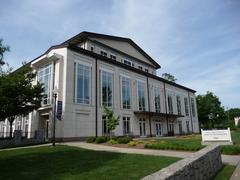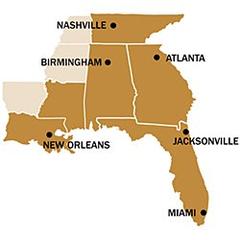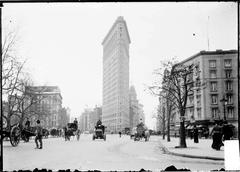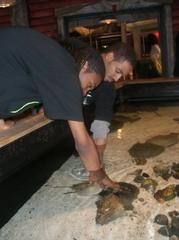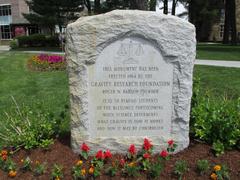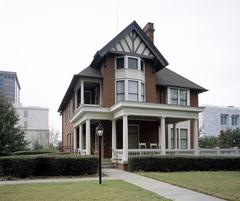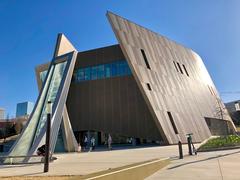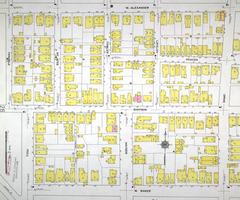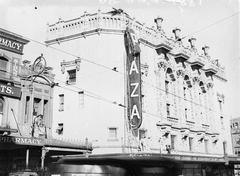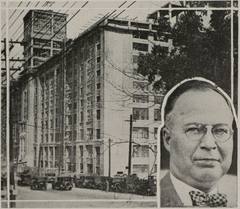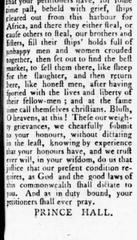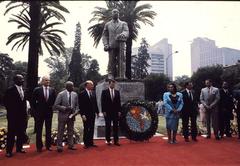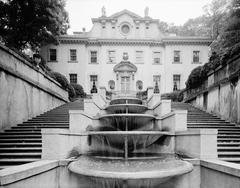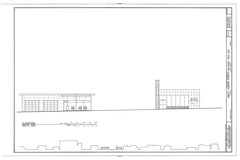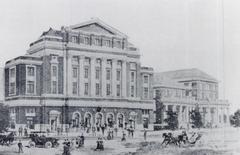Washington Hall Visiting Hours, Tickets, and Guide to Atlanta Historical Sites
Date: 03/07/2025
Introduction to Washington Hall Atlanta
Washington Hall occupies a foundational place in the story of Atlanta, Georgia, representing both the city’s antebellum ambitions and its resilience in the face of destruction. Established in 1846, Washington Hall was among Atlanta’s first major hotels, located near the critical railroad junction that propelled Atlanta’s rapid growth. While the original hotel was destroyed during the Civil War, its legacy endures through the city’s historical landmarks, museums, and commemorative sites. This guide offers a detailed look at Washington Hall’s history, its influence on Atlanta’s urban development, and practical information for exploring the city’s rich historical landscape. For deeper research and visitor planning, resources such as the Atlanta History Center and Explore Georgia provide valuable archival materials and context.
Table of Contents
- Introduction
- Early Construction and Founding
- Role in Antebellum Atlanta
- Architectural Features and Adaptations
- Civil War Destruction and Postwar Legacy
- Visiting Washington Hall’s Historic Site and Related Attractions
- Travel Tips and Accessibility
- Frequently Asked Questions (FAQ)
- Conclusion & Call to Action
- References
Early Construction and Founding (1846–1847)
Washington Hall was constructed in late 1846 by James Loyd at the intersection of Loyd Street (now Central Avenue) and the Georgia Railroad line. As Atlanta boomed into a transportation hub, the hotel provided essential lodging for travelers, businessmen, and railroad workers. The two-story brick and wood structure was frequently renovated to keep pace with Atlanta’s explosive prewar growth, making it a prominent fixture in the city’s hospitality scene. Its location near the railroad terminus underscored its centrality to Atlanta’s development.
Role in Antebellum Atlanta
As one of Atlanta’s earliest hotels, Washington Hall played a crucial role alongside the Atlanta Hotel and Trout House in shaping the city’s emerging hospitality industry. Its adaptability and prime location attracted a varied clientele, from dignitaries and business leaders to laborers and new residents. The hotel became a social and political hub, hosting meetings, banquets, and even city council gatherings, and it quickly established a reputation as a flexible, reliable accommodation during a period of rapid urbanization.
Architectural Features and Adaptations
Washington Hall’s design was utilitarian and reflected the city’s swift changes. The hotel’s structure evolved through frequent renovations, prioritizing functionality for the increasing number of visitors. Its three-story brick construction was considered advanced for its era, setting a regional standard and offering spacious parlors and guest rooms. These features allowed it to serve as a venue for major civic and social events, reflecting Atlanta’s ambitions for modernity.
Civil War Destruction and Postwar Legacy
During the Civil War, Atlanta’s strategic importance made it a target for both Confederate and Union armies. Washington Hall served as headquarters, lodging, and even a hospital for troops. In 1864, during the Battle of Atlanta, the hotel was destroyed as part of the widespread fires set during General Sherman’s campaign (Atlanta History Center). The loss of Washington Hall was symbolic of the city’s devastation, but it also marked the beginning of Atlanta’s rebirth. In 1875, the Markham House was built on the former site, further cementing the area’s continued civic significance.
Visiting Washington Hall’s Historic Site and Related Attractions
Although Washington Hall no longer exists, visitors can immerse themselves in Atlanta’s Civil War and antebellum history through nearby museums, markers, and walking tours.
Major Sites & Museums
- Atlanta History Center: Features extensive Civil War exhibits and materials about Atlanta’s early development. Open Tuesday–Sunday, 10 AM to 5 PM. Admission: ~$21 for adults, with discounts available. (Atlanta History Center)
- Oakland Cemetery: Historic burial ground with Civil War monuments and guided tours.
- Cyclorama at Atlanta History Center: Home to the massive Civil War painting and interpretive displays.
- Georgia State Capitol: Located near the original Washington Hall site, offering free weekday tours highlighting political and architectural history.
Downtown Walking Tours
Several companies offer guided tours focusing on Civil War sites, antebellum history, and architecture. Tours typically last 1.5–2 hours, costing $20–$35 per person. Advance booking is recommended, especially in peak seasons.
Travel Tips and Accessibility
- Getting There: The original Washington Hall site is near Central Avenue and the Georgia Railroad line, accessible via MARTA (Georgia State and Five Points stations) and major bus routes (MARTA Guide).
- Accessibility: Museums and most tour companies offer wheelchair access. Confirm specific accommodations when booking.
- Parking: Paid lots and garages are available nearby; early arrival is suggested for events or tours.
- Best Time to Visit: Spring and fall offer pleasant weather and numerous city festivals (This Couple Travels).
- Nearby Dining: Downtown Atlanta boasts a range of eateries, from Southern cuisine to international fare.
Frequently Asked Questions (FAQ)
Q: Can I visit Washington Hall today?
A: The original building was destroyed in 1864. However, the site is included on many historic walking tours and is marked by interpretive plaques.
Q: Are there tickets or specific hours to visit the Washington Hall site?
A: The site itself is public and can be visited at any time. Tickets may be required for guided tours or museum entry.
Q: Is Washington Hall wheelchair accessible?
A: The site is in a public downtown area. Museums and many tours are accessible; check in advance for details.
Q: What other historical sites are close to Washington Hall’s original location?
A: Notable sites include the Georgia State Capitol, Oakland Cemetery, Atlanta History Center, and Martin Luther King Jr. National Historical Park.
Conclusion & Call to Action
Washington Hall’s story is a microcosm of Atlanta’s evolution—from a vital railroad junction through Civil War devastation to a modern, vibrant metropolis. While the hotel itself no longer stands, its narrative lives on through the city’s museums, historic districts, and collective memory. Exploring the site and related attractions offers a unique lens on Atlanta’s resilience and transformation.
To enrich your visit, download the Audiala app for guided audio tours and real-time event information. Stay updated by following local historical resources and social media for exclusive content on Atlanta’s past and present.
References and Further Reading
- Atlanta History Center
- Explore Georgia
- GA Business & Lifestyle: Historic Homes & Landmarks
- Washington Hall Official Site
- Wikipedia: History of Atlanta
- Planetizen: Atlanta City Profile
- Discover Atlanta
- This Couple Travels
- The Tourist Checklist
- Tourist Places Guide
- Lonely Planet
- Travel Like a Boss


